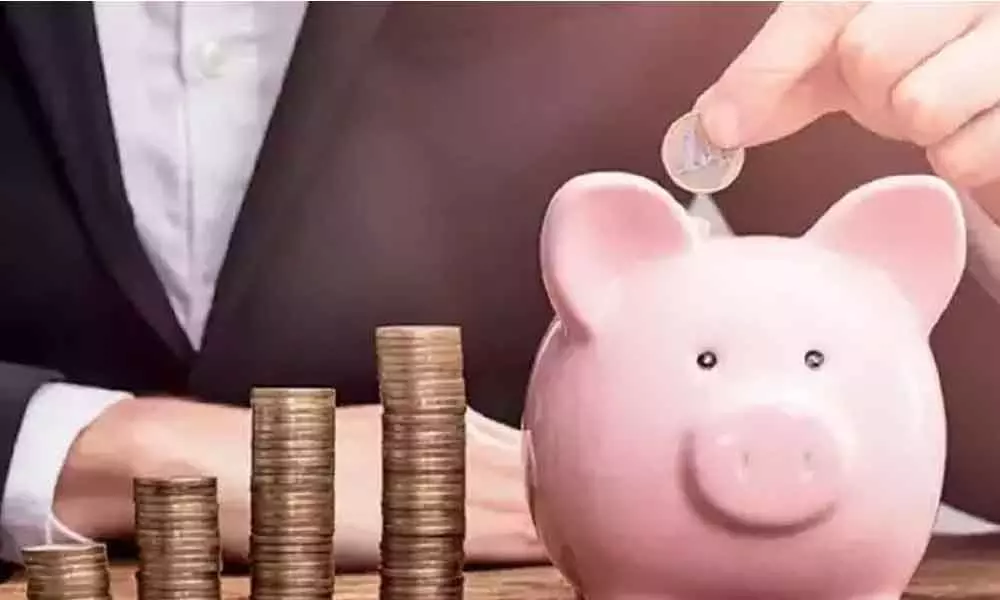Household savings jump to 22.5% of GDP in 2020

Household savings jump to 22.5% of GDP in 2020
Savings accounted for 19.8% of GDP in 2019
Mumbai: AS people were forced to remain indoors for most of the year due to the lockdowns, there was an unlikely winner in the pandemic-ravaged year — household savings, which rose to 22.5 per cent of GDP from 19.8 per cent in 2019, according to a report.
But households' physical savings fell to a low 5.8 per cent of GDP in the April-June period - when the whole nation was under a strict lockdown - and almost half of the pre-pandemic levels, according to an analysis by brokerage Motilal Oswal Financial Services.
However, the same recovered strongly to reach a multi-year high of 13.7 per cent of GDP by the December quarter. According to the latest data from the RBI, household non-financial savings stood at 21.4 per cent of GDP in the June quarter of 2020, and 10.4 per cent in the September quarter, as against 7-8 per cent of GDP in the pre-pandemic period.
However, this fell to 8.4 per cent in the December quarter. The RBI data also shows that gross financial savings fell to 13.2 per cent of GDP, while financial liabilities amounted to 4.8 per cent of GDP in the December quarter. In comparison to the September quarter, households increased their savings in currency and investments, but savings fell sharply in the form of deposits, pensions, and small savings.
While households borrowed more from banks, their liabilities with non-banks and housing finance companies declined in the December quarter. As against 10-12 per cent of GDP in the past decade, gross financial savings were still higher at 13.2 per cent of GDP in the December quarter.
In contrast, financial liabilities stood at 4.8 per cent of GDP. Consequently, household non-financial savings fell further to 8.4 per cent of GDP in the December quarter, as per the brokerage.
This means that non-financial savings constituted 12.7 per cent of GDP in the last three quarters of the year, against 7-8 per cent in the past decade and an all-time high of 12.1 per cent in FY10. Compared to most developed nations, household savings here are estimated indirectly and are defined and calculated using the 'flow of funds' approach for financial savings and 'commodity' or 'residual' approach for physical savings in the country.
However, in advanced economies, this is defined and calculated as the difference between the income of a household and their consumption.
The calculations suggest household investments or physical savings fell to 5.8 per cent of GDP in the second quarter of the year but surged to a multi-year high of 13.7 per cent in the third quarter.
During the second, third and fourth quarters of the year, physical savings stood at 10.6 per cent, lower than 11 per cent in the pre-pandemic period. Due to physical restrictions, household savings rose almost around the world last year.
The rise in household savings in the country in 2020 - which was equal to 1.1 times of the 2019 level - was the slowest compared to other nations as in Japan this rose as high as 5.4 times.
Interestingly, this slower growth was linked to weaker income growth as a 6 per cent decline in private final consumption was similar to or lower than that of most other nations, except for the US, where consumption fell only 2.7 per cent in 2020 from 2019 level.
















